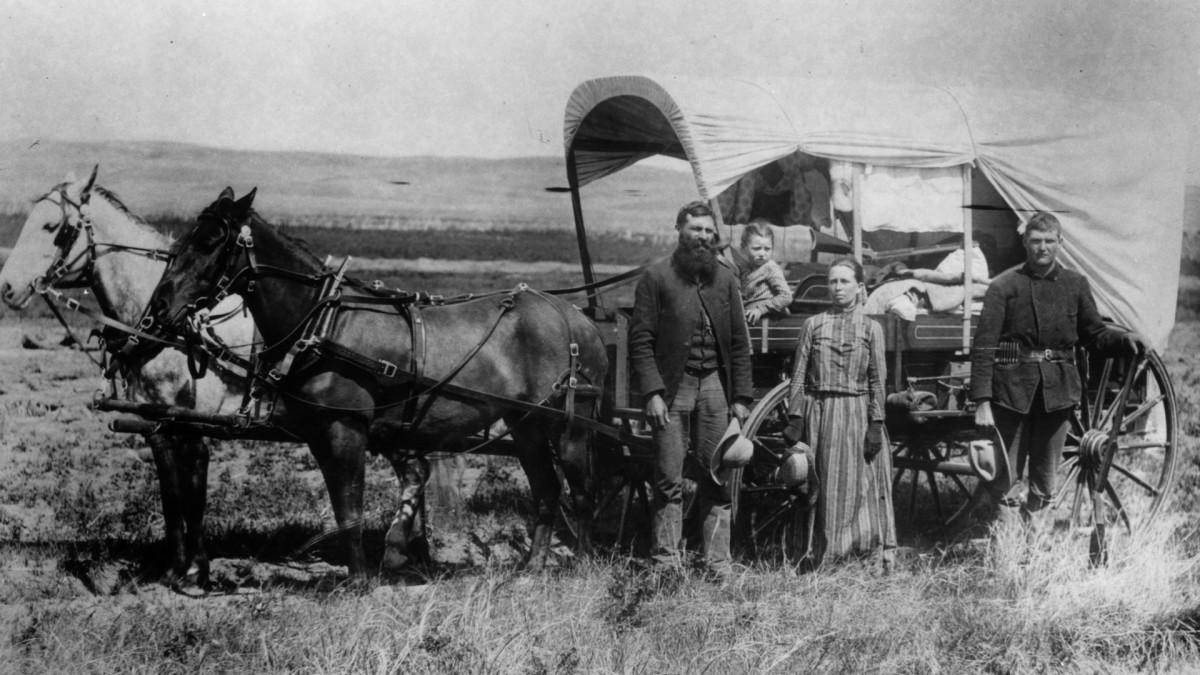About Publications Library Archives
heritagepost.org

Preserving Revolutionary & Civil War History

Preserving Revolutionary & Civil War History

Date:1862
Annotation: Law providing for free land for western settlers.
The Homestead Act of 1862 provided settlers with 160 acres of undeveloped land to encourage western migration. After paying a nominal filing fee, title to the land was granted for those who were at least 21 years of age, had built a home on the land and had resided there for five years. Northerners opposed the act. They argued that the free land would lower property values and reduce the cheap labor supply. Southerners also opposed the distribution of free land. They feared the West would become politically stronger and lend a voice in support of abolishing slavery. The Republican Party adopted the homestead legislation as part of its 1860 campaign; plus, the secession of the South led the way for the legislation to pass. President Abraham Lincoln signed the act into law on May 20, 1862.
Document: The Homestead Act May 20, 1862
An Act to secure homesteads to actual settlers on the public domain.
Be it enacted, That any person who is the head of a family, or who has arrived at the age of twenty-one years, and is a citizen of the United States, or who shall have filed his declaration of intention to become such, as required by the naturalization laws of the United States, and who has never borne arms against the United States Government or given aid and comfort to its enemies, shall, from and after the first of January, eighteen hundred and sixty-three, be entitled to enter one quarter-section or a less quantity of unappropriated public lands, upon which said person may have filed a pre-emption claim, or which may, at the time the application is made, be subject to pre-emption at one dollar and twenty-five cents, or less, per acre; or eighty acres or less of such unappropriated lands, at two dollars and fifty cents per acre, to be located in a body, in conformity to the legal subdivisions of the public lands, and after the same shall have been surveyed: Provided, That any person owning or residing on land may, under the provisions of this act, enter other land lying contiguous to his or her said land, which shall not, with the land so already owned and occupied, exceed in the aggregate one hundred and sixty acres.
Sec. 2. That the person applying for the benefit of this act shall, upon application to the register of the land office in which he or she is about to make such entry, make affidavit before the said register or receiver that he or she is the head of a family, or is twenty-one or more years of age, or shall have performed service in the Army or Navy of the United States, and that he has never borne arms against the Government of the United States or given aid and comfort to its enemies, and that such application is made for his or her exclusive use and benefit, and that said entry is made for the purpose of actual settlement and cultivation, and not, either directly or indirectly, for the use or benefit of any other person or persons whomsoever; and upon filing the said affidavit with the register or receiver, and on payment of ten dollars, he or she shall thereupon he permitted to enter the quantity of land specified: Provided, however, That no certificate shall be given or patent issued therefore until the expiration of five years from the date of such entry; and if, at the expiration of such time, or at any time within two years thereafter, the person making such entry — or if he be dead, his widow; or in case of her death, his heirs or devisee; or in case of a widow making such entry, her heirs or devisee, in case of her death — shall prove by two credible witnesses that he, she, or they have resided upon or cultivated the same for the term of five years immediately succeeding the time of filing the affidavit aforesaid, and shall make affidavit that no part of said land has been alienated, and that he has borne true allegiance to the Government of the United States; then, in such case, he, she, or they, if at that time a citizen of the United States, shall be entitled to a patent, as in other cases provided for by law: And provided, further, That in case of the death of both father and mother, leaving an infant child or children under twenty-one years of age, the right and fee shall inure to the benefit of said infant child or children, and the executor, administrator, or guardian may, at any time within two years after the death of the surviving parent, and in accordance with the laws of the State in which such children for the time being have their domicile, sell said land for the benefit of said infants, but for no other purpose; and the purchaser shall acquire the absolute title by the purchase, and be entitled to a patent from the United States, and payment of the office fees and sum of money herein specified.
Source: U. S. Statutes at Large, Vol. XII, p. 392 ff.